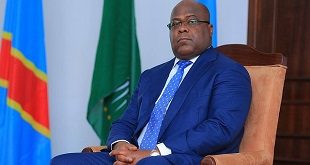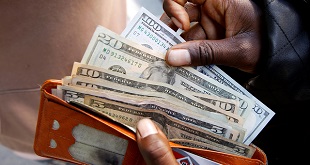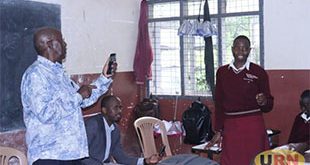There is widespread perception inside cabinet, Parliament and the general public that corruption has reached alarming levels. People close to power are looting the nation with reckless abandon, many people complain. A censure of Mbabazi and Suruma would have created a feeling that something is being done. Museveni’s open defence of Mbabazi has left a lot of bitterness whose implications are yet to be seen.
One likely outcome may be to generate open resistance to Museveni’s rule inside NRM. This can only be possible if major generals Jim Muhwezi and Kahinda Otafiire understand the opportunity this has created for them to emerge as potential alternatives to Museveni inside NRM and the country. They can exploit existing anger and apprehension in the party and nation to rally people in opposition to Museveni. Muhwezi is best-suited to play this role because he is not in government and he is facing corruption and theft charges orchestrated by Museveni. The public will be willing to embrace Muhwezi if he presents himself as Museveni’s alternative.
Yet it is unlikely that Muhwezi will choose this path. His family connections with the first family, especially Museveni’s wife, Mrs Janet Museveni, make this an unlikely option. The result of Museveni’s actions to save Mbabazi may only increase cynicism and apathy in our body politic. Here, Museveni will remain leader of an embittered NRM, but leader nonetheless. Without an alternative arising inside NRM, many Ugandans may turn to the opposition for search of an alternative.
For now, the opposition has not provided an effective alternative to Museveni. They are poor on message. Beyond highlighting the failures of the Museveni administration, a job they do poorly, they have not mastered an alternative agenda that can captivate the public. Secondly, the opposition has failed, just like NRM, to be effective in raising money from among its supporters inside Uganda and abroad. As a result, it has remained weak organisationally, lacking resources to establish functional party branches across the nation to mobilise people to the immense challenges facing the country.
For now, Museveni seems to be on top of the situation. He has retained Mbabazi as SG to keep the lid on a restless party. His fears that if the party developed a life of its own, it may grow into an independent centre of power have been rested. He cannot therefore suffer what happened to former South African president, Thabo Mbeki. It is dangerous to have a strong political party like the African National Congress (ANC). Museveni has been careful not to allow NRM’s structures to work independent of how he personally exercises power.
One of the ways Museveni has employed to undermine the growth of NRM into a viable political party has been to ensure that it does not develop an independent source of money. Rather it should depend on him personal and entirely for resources to finance its existence. Parties raise money through subscription and membership fees. NRM has not done this. They also sell souvenirs. They get donations from individuals, organisations and groups which share the party platform.
For NRM, it has always been Museveni personally who mobilises money for the activities of the party. And this is not a role he hates. Oftentimes, he puts his fingers into the public treasury to finance party activities. For example, The Independent has evidence that rent for party headquarters along Kyandondo Road was in 2006 being paid by State House. Sometimes, he raises money from individual business people inside of Uganda ” especially Indians. Part of his money comes from friends and allies among Africa’s leaders ” like Libya’s Muammar Gaddafi, Nigeria’s former president, Olusegun Obasanjo; former President Daniel arap Moi of Kenya and Tanzania’s Chama Cha Mapinduzi (CCM).
The party thus depends on him personally for its fiscal survival. This has meant that party members cannot have a say in the actual functioning of the party. This state of affairs, for example, is the opposite of what we see in Rwanda. There, the ruling Rwanda Patriotic Front (RPF) owns a holding company called Tri Star. With investments in telecommunications, manufacturing, real estate, banking, insurance, construction, beverages and more, Tri Star is one of the most successful and highest tax-paying companies in Rwanda. In 2007, it sold its shares in MTN Rwanda at US$ 67m. With such resources, the RPF enjoys fiscal existence beyond the personality of its president, Paul Kagame. Party structures work and meetings are regular.
Yet in Uganda and almost four decades of ‘struggle’, the NRM is an empty shell. Its treasure, Ndaula Kawesa has never handled any money. Instead, the party is constantly being threatened with eviction from its headquarters which its president last visited in 2005. Mbabazi himself does not turn up at party headquarters for work or meet and interact with other leaders of the party. Rather he hosts his office in his personal house in the same neighbourhood. This is one of the few parties in this world that depends on its leaders for existence rather than vice versa.
These issues have been a matter of concern in the party since the mid 1990s and have continued since. That Museveni has survived all this acrimony is testimony to his personal charm and organisation ability to keep party members in line.
 The Independent Uganda: You get the Truth we Pay the Price
The Independent Uganda: You get the Truth we Pay the Price


